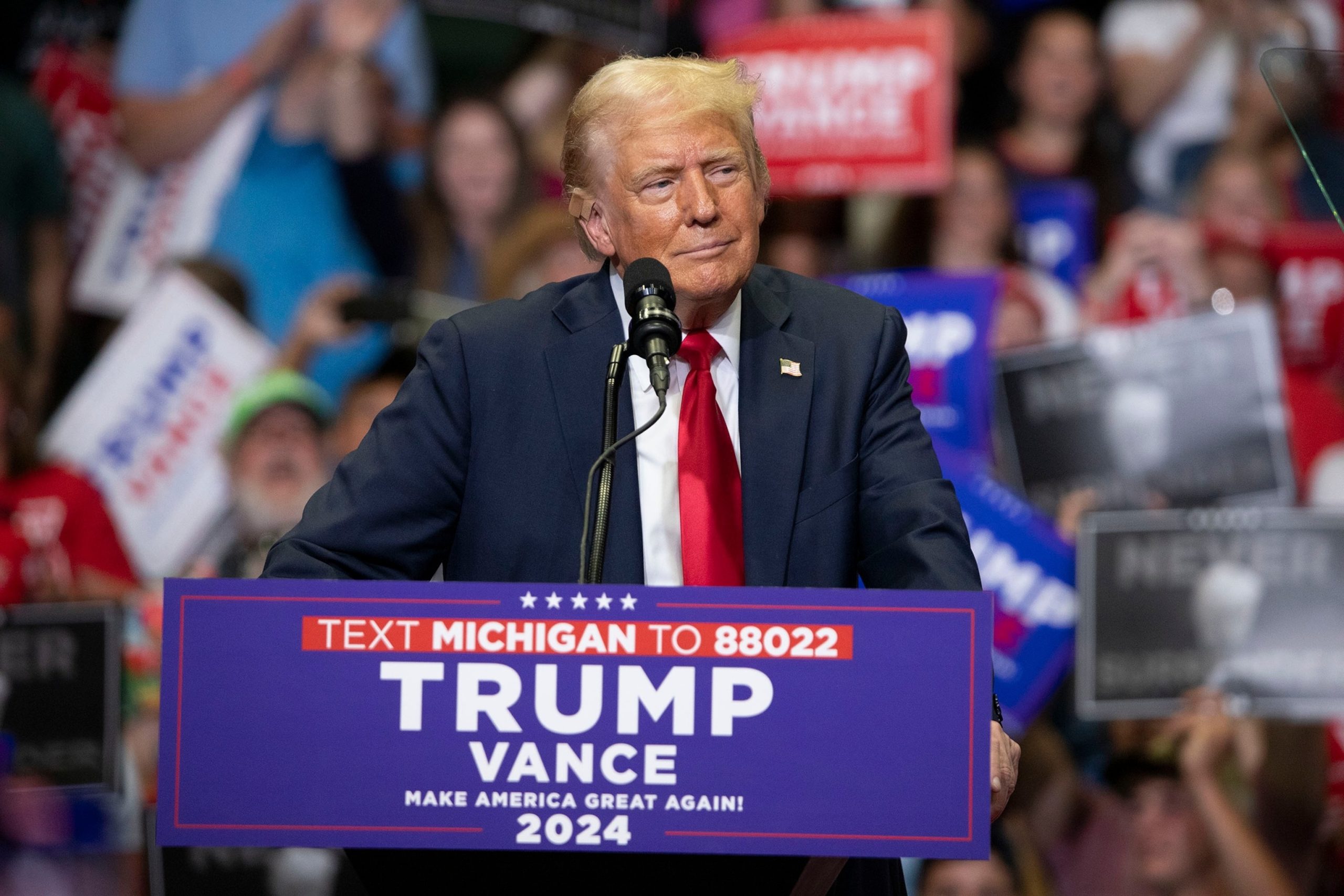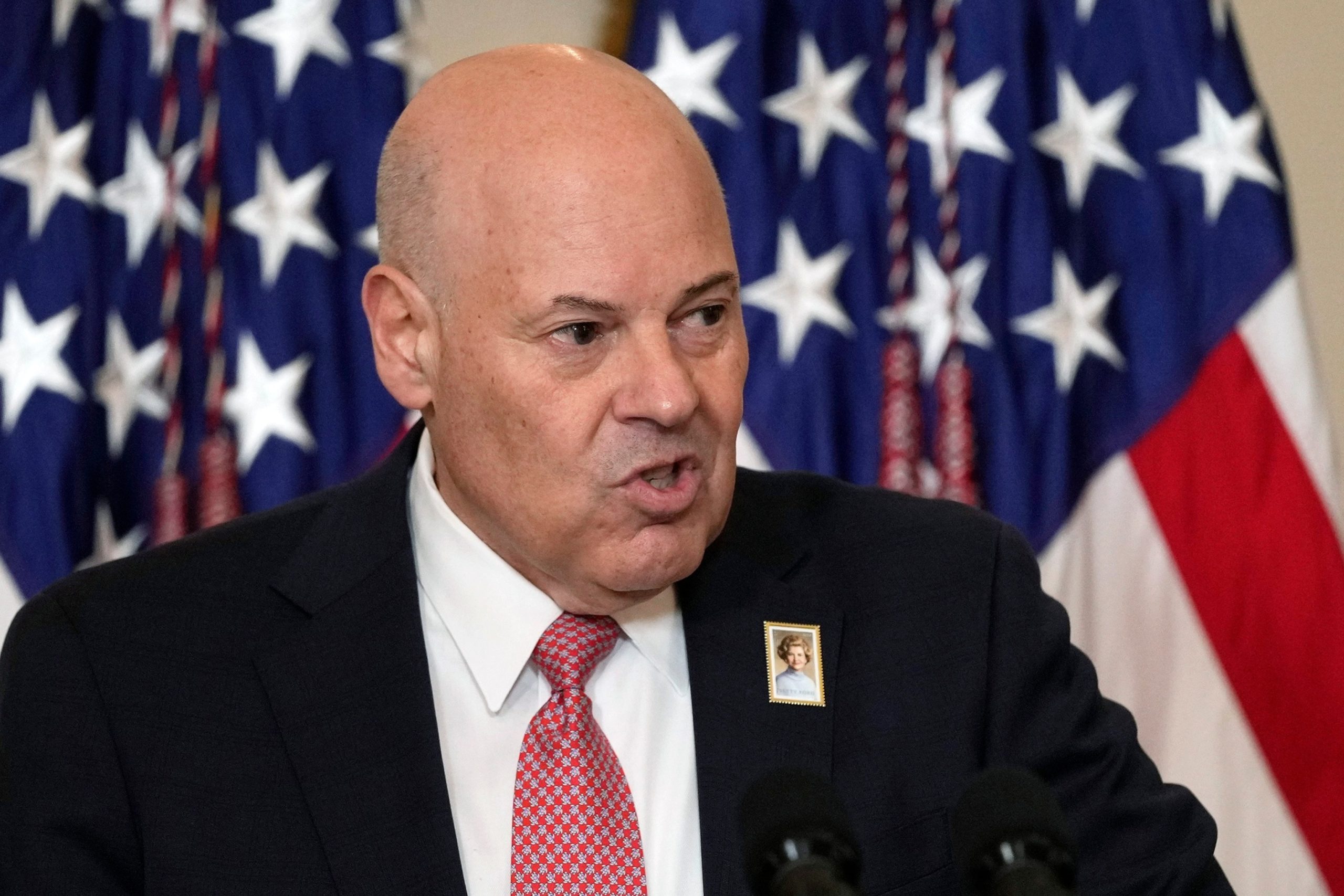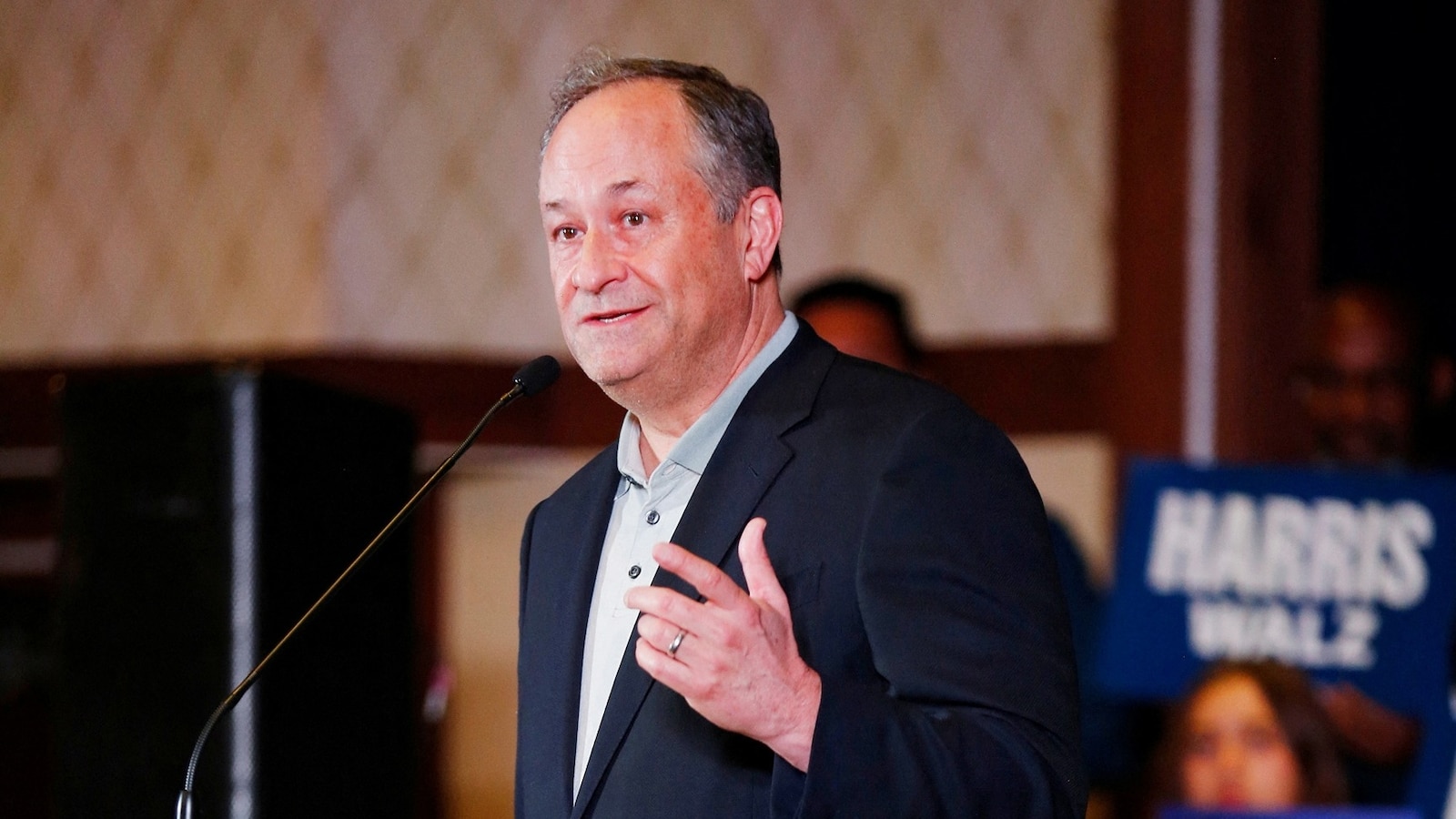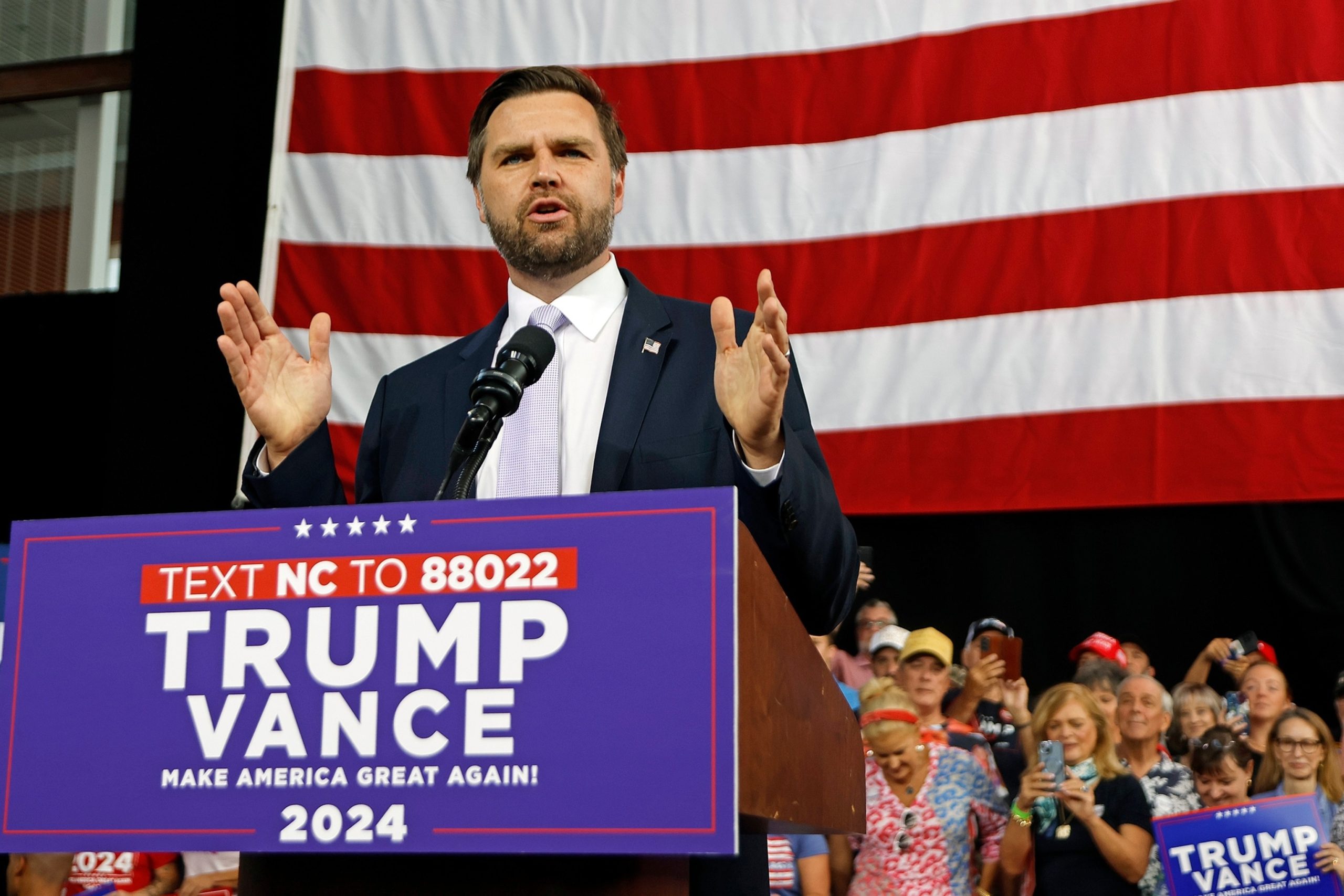In her second move since resuming control over Donald Trump’s federal election interference case, Judge Tanya Chutkan denied the former president’s motion to dismiss the case based on selective and vindictive prosecution.
Chutkan found “no evidence” that prosecutors abused their authority or behaved vindictively when bringing their case against the former president.
In denying Trump’s motion, Chutkan criticized what she called Trump’s “improper framing” that the allegations against him are a “theory…that it is illegal to dispute the outcome of an election and work with others to propose alternate electors.”
“At this stage, the court cannot accept Defendant’s alternate narrative,” Chutkan wrote.
Before the federal case was frozen for more than half a year, defense attorneys attempted to have the case thrown out by arguing that Trump was selectively prosecuted and unfairly targeted “to prevent him from becoming ‘the next President again.'”
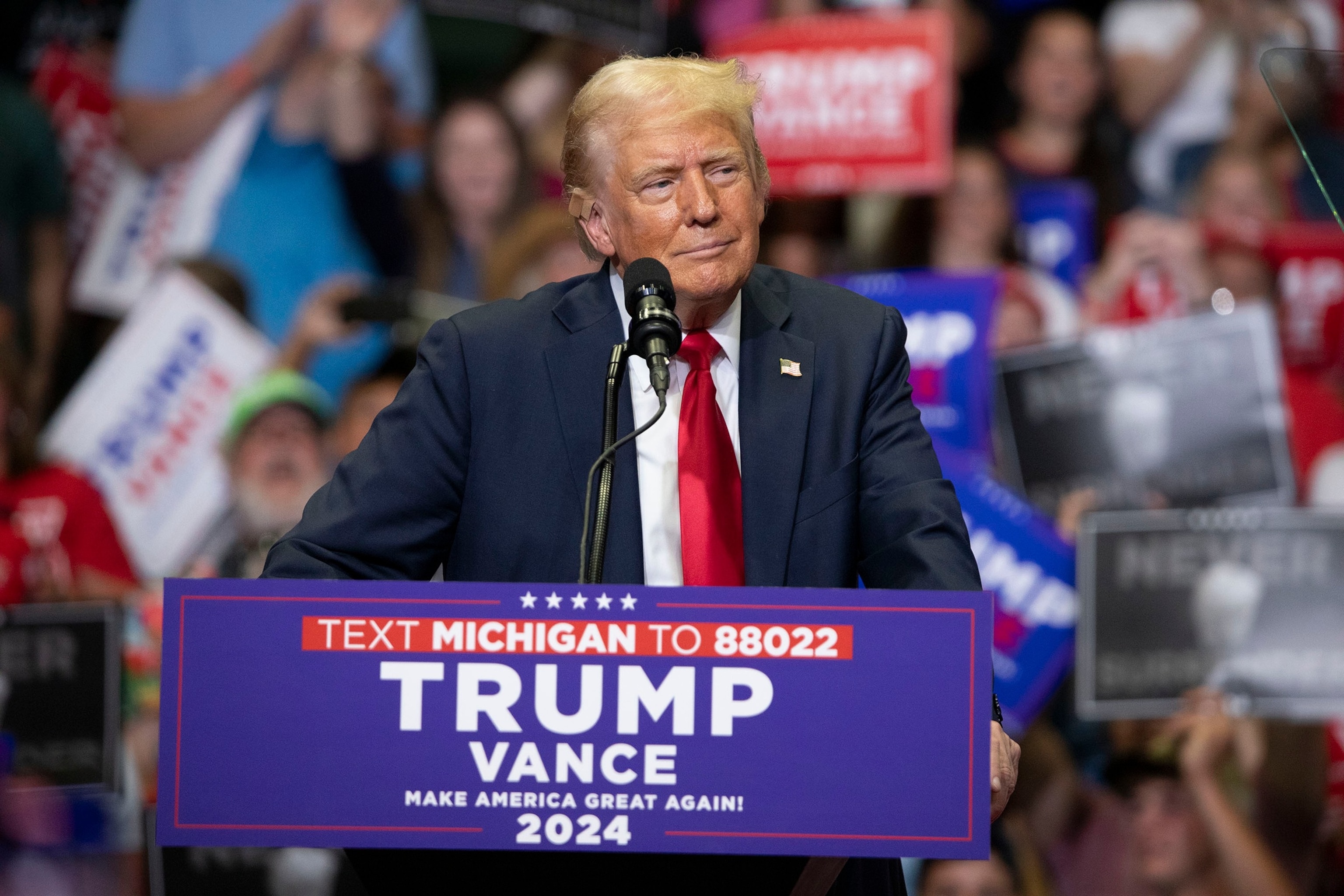
Former President Donald J. Trump holds his first public campaign rally with his running mate, Vice Presidential nominee Senator J.D. Vance at the Van Andel Arena Grand Rapids, MI, July 20, 2024.
Bill Pugliano/Getty Images
“After reviewing Defendant’s evidence and arguments, the court cannot conclude that he has carried his burden to establish either actual vindictiveness or the presumption of it, and so finds no basis for dismissing this case on those grounds,” Chutkan wrote in a 16-page order.
Chutkan found that Trump failed to provide evidence for either prong of the two-part test to prove selective prosecution – that he was singled out for prosecution or that the case was motivated by a discriminatory purpose.
“Finding no evidence of discriminatory purpose in the sources Defendant cites, the court is left only with his unsupported assertions that this prosecution must be politically motivated because it coexists with his campaign for the Presidency,” Chutkan wrote.
Earlier in the day, Chutkan set a hearing for Aug. 16 at 10 a.m., which Trump is not required to attend.
This will be the first time in seven months the parties will appear in Chutkan’s courtroom. Chutkan also denied Trump’s motion to dismiss the case on statutory grounds.
Trump last year pleaded not guilty to charges of undertaking a “criminal scheme” to overturn the results of the 2020 election by enlisting a slate of so-called “fake electors,” using the Justice Department to conduct “sham election crime investigations,” trying to enlist the vice president to “alter the election results,” and promoting false claims of a stolen election as the Jan. 6 riot raged — all in an effort to subvert democracy and remain in power.
The former president has denied all wrongdoing.
Trump originally faced a March 4 trial date before his appeal effectively paused the proceedings.
A federal judge has ruled against former President Donald Trump’s attempt to dismiss a lawsuit filed against him in Washington, D.C. The lawsuit alleges that Trump incited the January 6th Capitol riot and seeks to hold him accountable for his role in the deadly insurrection.
In his ruling, Judge Amit Mehta rejected Trump’s argument that the lawsuit should be dismissed on the grounds of selective prosecution. Trump’s legal team had argued that the case was politically motivated and that he was being unfairly targeted by prosecutors.
However, Judge Mehta disagreed, stating that there was no evidence to support Trump’s claim of selective prosecution. The judge emphasized that the lawsuit was based on specific allegations of wrongdoing by Trump and that the case should proceed to trial.
The lawsuit, filed by two Capitol Police officers who were injured during the riot, accuses Trump of inciting the violence through his false claims of election fraud and his encouragement of his supporters to “fight like hell” to overturn the election results.
The ruling is a significant blow to Trump’s legal defense strategy, as he faces multiple lawsuits and investigations related to his actions before and during the Capitol riot. The decision also sets a precedent for future cases involving claims of selective prosecution against public officials.
Legal experts say that the ruling underscores the importance of holding public officials accountable for their actions, particularly when those actions lead to violence and harm. It also highlights the challenges of defending against lawsuits based on allegations of incitement and conspiracy.
As the case moves forward, Trump will have to face the allegations against him in court and potentially answer tough questions about his role in the events of January 6th. The ruling serves as a reminder that no one is above the law, even a former president, and that justice must be served for those who were affected by the Capitol riot.
